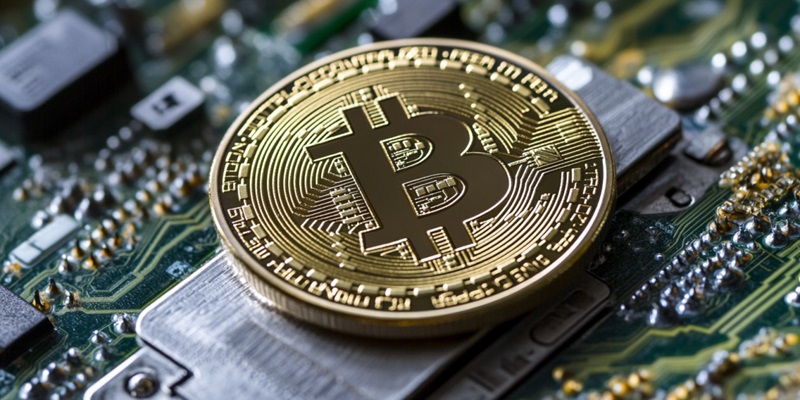In a recent turn of events that has captivated the cryptocurrency world, Bitcoin (BTC) and Binance Coin (BNB) experienced a temporary dip in value following the release of Binance founder Changpeng Zhao on September 27, 2024. This occurrence is particularly significant given Zhao’s substantial influence on Binance and the broader cryptocurrency market, raising questions about market stability and the impact of regulatory pressures on digital assets.
Impact of Changpeng Zhao’s Release on Cryptocurrency Markets
Centralization of BNB Tokens and Zhao’s Influence
Changpeng Zhao’s control over Binance and his substantial ownership of BNB tokens have long been a topic of debate in the cryptocurrency community. According to a Forbes report, Zhao owns a staggering 64% of the total BNB supply, which originally placed his net worth at approximately $61 billion in mid-2024. This sizable holding not only underscores Zhao’s financial clout but also highlights the centralization concerns surrounding BNB tokens. Currently, Zhao’s holdings, totaling around 94 million BNB tokens, are valued at approximately $57 billion due to a decline in token value from over $700 in June 2024 to the current price of $581.
The release of Zhao prompted immediate reactions in the cryptocurrency market. Given his central role in the ecosystem, market participants reacted with a mix of uncertainty and caution. The temporary dip in the value of both Bitcoin and Binance Coin following his release is indicative of Zhao’s substantial influence. Investors and traders alike keep a close watch on his movements, as his decisions can have far-reaching consequences on their investments. This situation reflects broader issues in the cryptocurrency world, where market sentiment can be heavily swayed by key figures and regulatory developments.
Regulatory Challenges and Legal Issues
Binance and Changpeng Zhao have been entangled in a series of legal issues that have impacted the company’s operations and the broader cryptocurrency market. Notably, Zhao and Binance have faced charges from the U.S. Department of Justice, alleging violations of the Bank Secrecy Act. These legal challenges have created uncertainties around the regulatory environment for digital assets, complicating Binance’s ability to maintain its dominant market position. Such accusations have not only affected Binance’s reputation but also led to fluctuations in the value of cryptocurrencies associated with the platform.
One significant development in this ongoing legal saga was the $4.3 billion settlement reached between Binance and the Securities and Exchange Commission (SEC) in November 2023. This settlement marked a critical juncture for Binance, with the SEC’s involvement bringing the company’s practices under intense scrutiny. Although the resolution led to a brief 7% surge in BNB’s price within 24 hours, it also came with stringent provisions. Specifically, the settlement mandated independent monitoring of Binance’s operations by the Forensic Risk Alliance for the next three years. This monitoring aims to ensure compliance with regulatory norms, adding an additional layer of oversight to Binance’s activities.
Future Trajectory of Binance and the Cryptocurrency Market
Initial Allocation and Centralization Concerns
The centralization of BNB tokens has been a persistent concern for the cryptocurrency community and regulators alike. Initially, 80 million BNB tokens were allocated to the original Binance team, of which the company still retains 46 million tokens. This concentration of ownership exacerbates the regulatory and market challenges Binance faces as it strives to navigate a landscape fraught with legal complexities and evolving regulatory frameworks. The centralization issue also raises questions about the decentralization ethos that underpins the broader cryptocurrency movement, which aims to distribute control widely to ensure resilience and fairness.
The overview provided by various reports highlights the complexities and ongoing scrutiny that Binance faces despite its dominant position in the cryptocurrency world. The company’s substantial holdings in BNB tokens reinforce concerns about the potential for market manipulation and the influence of centralized control. These issues are not only relevant for Binance but also for the broader cryptocurrency community, as they touch upon fundamental principles of transparency, fairness, and decentralization. Regulators and market participants continue to grapple with these challenges, seeking to find a balance that allows for innovation while ensuring market stability and investor protection.
Regulatory Actions and Market Impact
In a recent development that has drawn significant attention in the cryptocurrency community, the values of Bitcoin (BTC) and Binance Coin (BNB) experienced a brief decline following the release of Binance founder Changpeng Zhao on September 27, 2024. As the head of one of the world’s largest cryptocurrency exchanges, Zhao wields substantial influence over Binance and the broader digital currency market. His release has sparked discussions regarding the stability of the market and the effects of regulatory scrutiny on cryptocurrencies.
The event underscores the fragile nature of digital asset markets and how key figures can impact market sentiment and investor confidence. Regulatory pressures have long been a point of contention in the cryptocurrency space, and Zhao’s situation brought this issue back into the spotlight. Investors and analysts are now closely watching how these factors might shape the future landscape of digital currencies. As the industry evolves, the incident serves as a reminder of the ongoing challenges and uncertainties surrounding the regulation and stability of cryptocurrencies.

